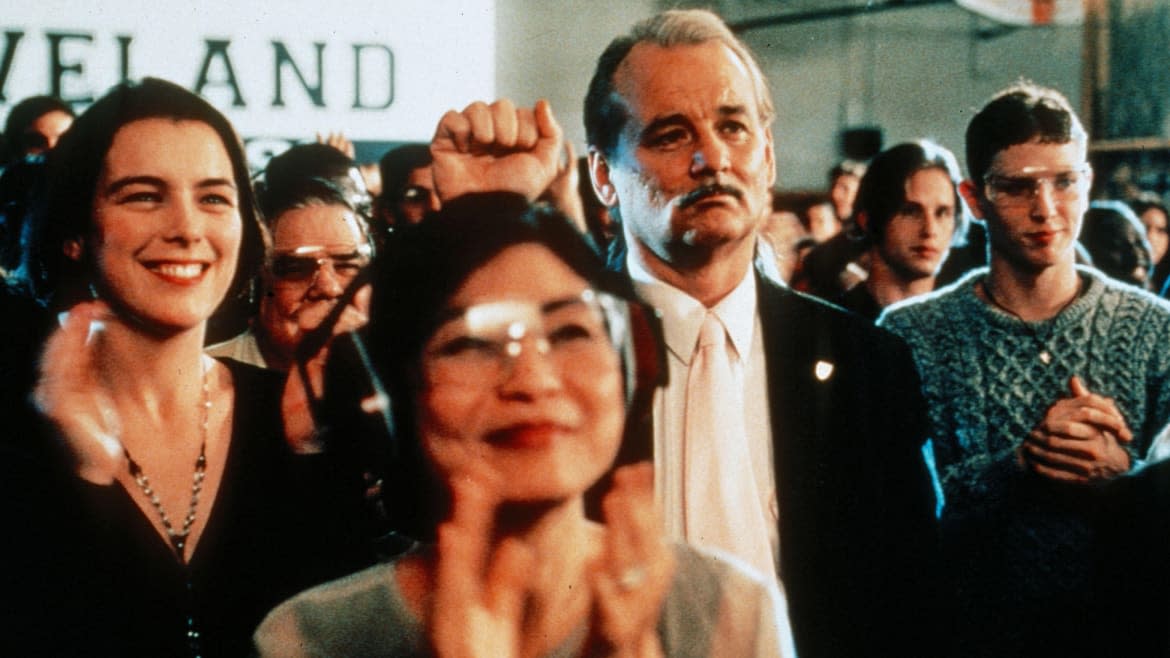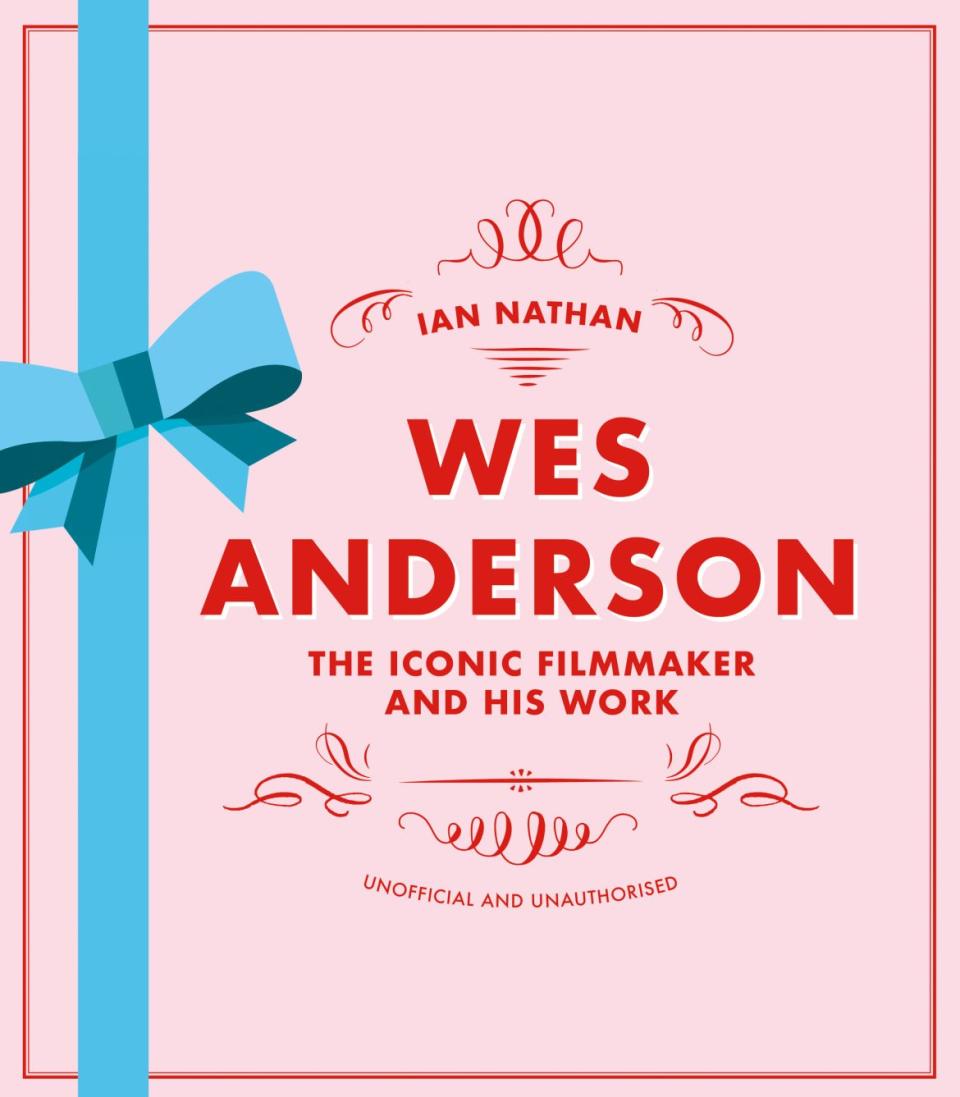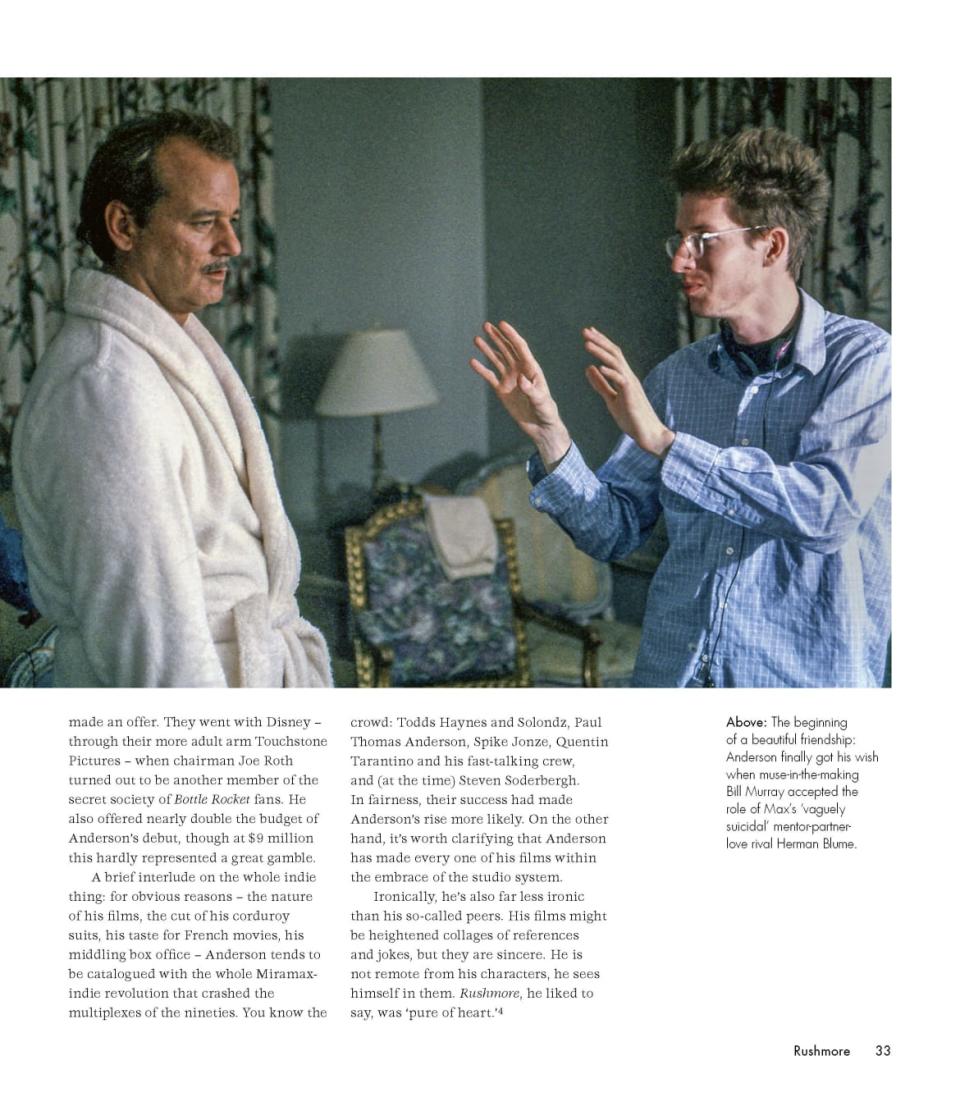How Wes Anderson Saved Bill Murray’s Career

[Bill] Murray had fallen into Anderson’s orbit by fluke. The director was naturally a huge fan. That symphony of droll perfected in The National Lampoon Radio Hour and Saturday Night Live before souring the gee-whizz high concepts of Ghostbusters, Scrooged and Groundhog Day to perfection had made the actor one of the biggest comedy stars of the eighties and nineties. This was despite Murray doing his darnedest to confound the notion of stardom. The fifth of nine children of a mailroom clerk mother and lumber salesman father from Wilmette, Illinois (near Chicago), he was a bottle rocket celebrity as liable to wrestle an interviewer to the ground as answer a question. He prided himself on being unobtainable via regular Hollywood channels. He rarely responded to his agent’s entreaties. It could take months to get a reply.
Anderson had several backups in mind only because he was resigned to not getting his heart’s desire to mine the less obviously nuts side Murray had shown in Mad Dog and Glory, Ed Wood and Razor’s Edge.
PRE-ORDER ‘WES ANDERSON: THE ICONIC FILMMAKER AND HIS WORK’

Yet Murray was at a crossroads. Recent sourpuss star vehicles Larger Than Life and The Man Who Knew Too Little had flopped badly. There was a growing hunger to be more serious. He needed Anderson as much as Anderson needed him. Through his regular appearances in Anderson’s films, from leading man to cameo (it’s now an “automatic yes” whenever he calls), Murray assembled a rich second act for his career that mixed his asinine worldliness with vulnerability and encompassed an Oscar nomination for Sofia Coppola’s Lost in Translation.
Revitalized in misery, he has become, as Anthony Lane of The New Yorker put it, “the most singular presence in American cinema.” Murray’s expressive mug, as round and pocked as the surface of the Moon, is a map of human bafflement and sorrow. The genius of Murray is that his pokerfaced melancholy is so indefinable, root cause doesn’t even apply. Beginning with Herman Blume, he summons up an aura of despair that is existential. We can but laugh.
‘On the Rocks’ Is Bill Murray and Sofia Coppola’s Love Letter to New York City
Fortunately, Murray’s agent had been another of those to get Bottle Rocket (though Murray had revealed no interest in playing Mr. Henry), and urged his client to read the new script. The character clearly touched a chord, for Murray got back to Anderson within a week, agreeing to work for scale—he termed it “pro bono 14”—with a smaller slice of the profits than was usual. His only stipulation was to start earlier than scheduled rather than wait.
In subsequent interviews Murray suggested he is often drawn to the chance to “go down with the guys who don’t have a chance.” Which was a backhanded compliment, but that deal helped make the film happen.

On Murray’s first day on set, Anderson whispered his instructions to the star, fearful of ruffling feathers. Murray instantly made a big deal out of deferring to the young director, a completely different temperature to James Caan [on Bottle Rocket]. He was having a ball, hauling equipment with the crew, more court jester than diva. He even presented Anderson with a blank cheque to fund a helicopter shot when Disney baulked at the $75,000 cost (the shot was dropped in any case, but Anderson is still in possession of that cheque should an emergency arise).
Then Blume fitted the actor like a worn suit (he wears the same one throughout). On the downslope of a marriage, the local plutocrat is the model of American wealth in tailspin who finds his sagging spirit stirred by both Max and Rosemary. So beguiling was Murray’s depiction of what is essentially depression—but always with a sense of impending mischief—Touchstone brought forward release of the film in the hopes of landing him an Oscar nomination for Supporting Actor (it didn’t catch, the fools). “If you just watch his eyes,” said [producer Barry] Mendel, “you can understand the entire story.”
Get our top stories in your inbox every day. Sign up now!
Daily Beast Membership: Beast Inside goes deeper on the stories that matter to you. Learn more.

